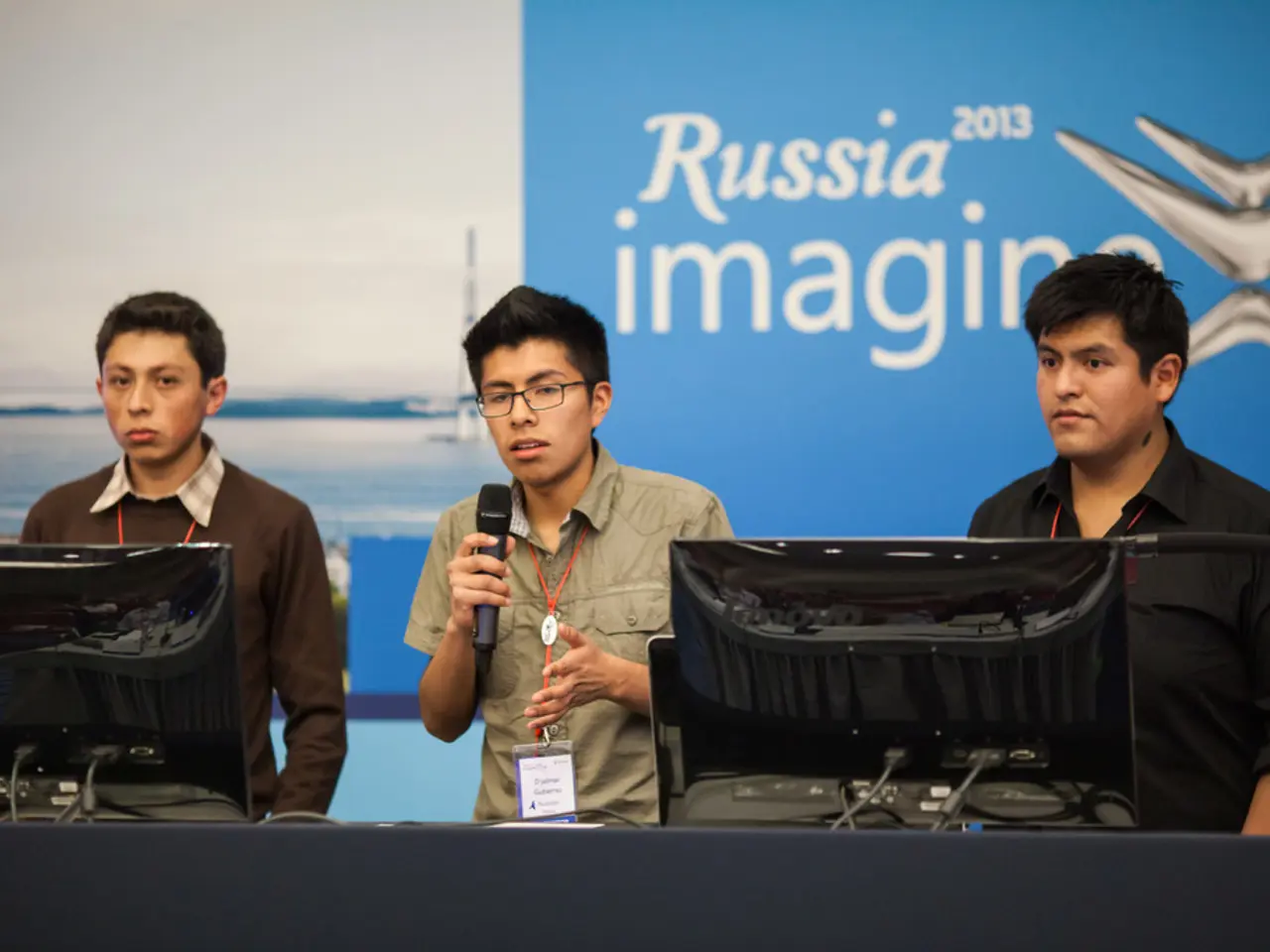EU Discussion on Ukraine Territory - Disputing Potential Land Concessions
In the ongoing Ukraine-Russia conflict, the political landscape regarding territorial concessions and security guarantees is complex and dynamic.
Ukraine firmly stands against any territorial concessions demanded by Russia, particularly the relinquishment of control over Donetsk, Luhansk, Zaporizhia, and Kherson regions. President Volodymyr Zelensky has dismissed proposals for Ukraine to cede territories to Russia, maintaining Ukraine’s sovereignty and territorial integrity as a priority.
Russia, on the other hand, demands full control over Donetsk and Luhansk, as well as other Ukrainian territories. Moscow conditions peace negotiations on Ukraine withdrawing from these areas, along with demilitarization, "denazification," and neutrality (i.e., no NATO membership). Russia remains uncompromising on these objectives, showing no willingness to consider territorial concessions itself.
The United States, represented recently by Secretary of State Marco Rubio, emphasizes that both sides will need to make concessions to end the war. However, the US refuses to undertake peace agreements with Russia alone and supports Ukraine's territorial integrity and security guarantees, but recognizes the necessity for compromises in reaching peace.
The European Union and its leaders support a ceasefire along the current frontlines but do not recognize Russia’s annexation of Ukrainian territory. EU leaders, like Dutch Prime Minister Mark Rutte, have stated the West will never accept Russia’s claims to these occupied territories and will only recognize legitimate Ukrainian sovereignty, similar to the non-recognition policy previously held regarding Soviet occupation of Baltic states.
As the conflict continues, discussions are underway regarding a potential "land swap" between Russia and Ukraine. However, Ukrainian President Volodymyr Zelensky has reiterated his opposition to a land swap deal, emphasizing that everything concerning Ukraine should be decided with Ukraine's participation.
In a surprising turn of events, President Donald Trump and Russian President Vladimir Putin are planning to meet in the US state of Alaska to discuss a possible peace solution in the nearly four-year-old Russian invasion. However, Zelensky believes the meeting is an attempt by Moscow to deceive America.
Meanwhile, human rights abuses are occurring in the occupied territories, with limited access. Millions of Ukrainians currently live under Russian occupation, with hundreds of thousands of children being indoctrinated. The damage and casualties from Ukrainian drone attacks on Russian targets are minimal compared to the casualties and destruction caused by Russian attacks.
Ukraine uses drone attacks to target enemy supply lines and disrupt military logistics. Recently, a Russian airstrike using guided bombs injured at least 20 people in the southeastern Ukrainian city of Saporizhzhia, hitting a bus station in the city center. Russia, in response, reported two deaths and three injuries from a Ukrainian drone strike on a civilian enterprise in the central Russian city of Tula.
The debate on ceding territory is not just about land, but also about people. Ukrainian Ambassador Makeiev states that any discussion on territorial concessions must consider the well-being and future of the people living in these regions.
As negotiations continue, the US Vice President JD Vance has expressed the desire to withdraw financially from supporting Ukraine. Vance and Trump believe the US are done financing the Ukraine war. However, the decision regarding an invitation to Zelensky for a meeting with Trump remains uncertain, with the final decision resting with President Trump.
NATO Secretary-General Rutte expects discussions about territories controlled by Russia to be unavoidable in future negotiations regarding the war in Ukraine. He emphasizes that Ukraine is a sovereign state that determines its own geopolitical future. The political positions on territorial concessions and security guarantees in the Ukraine-Russia conflict are shaping the course of negotiations and the future of Ukraine.
- Discussions about potential territorial concessions in the Ukraine-Russia conflict, beyond just the land, also involve considering the well-being and future of the people living in the regions, as stated by Ukrainian Ambassador Makeiev.
- The United States, while emphasizing the need for concessions from both sides to end the war, supports Ukraine's sovereignty and territorial integrity, and has shown reluctance toward undertaking peace agreements without Ukraine's participation, a stance expressed by Vice President JD Vance.







